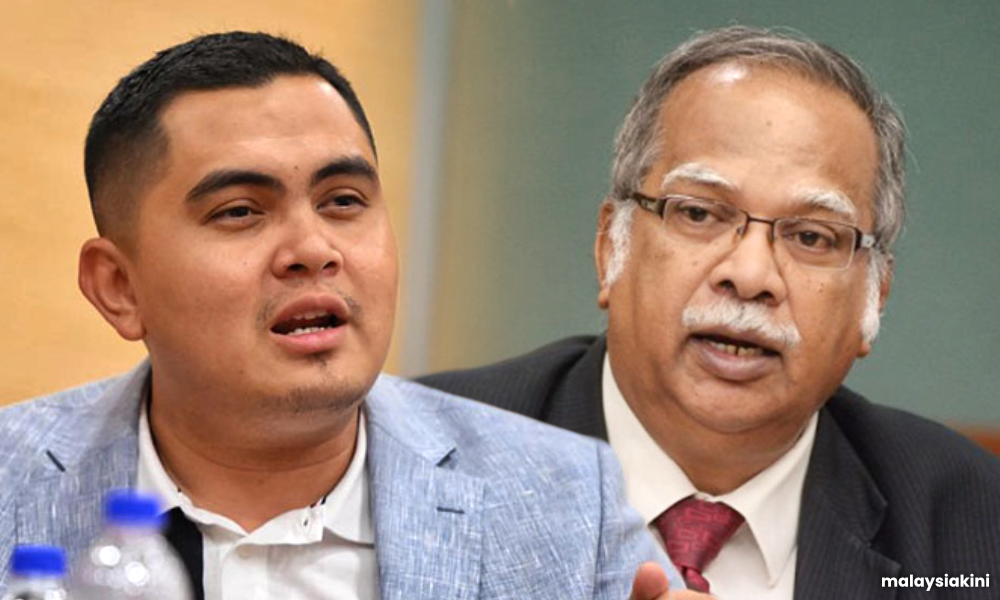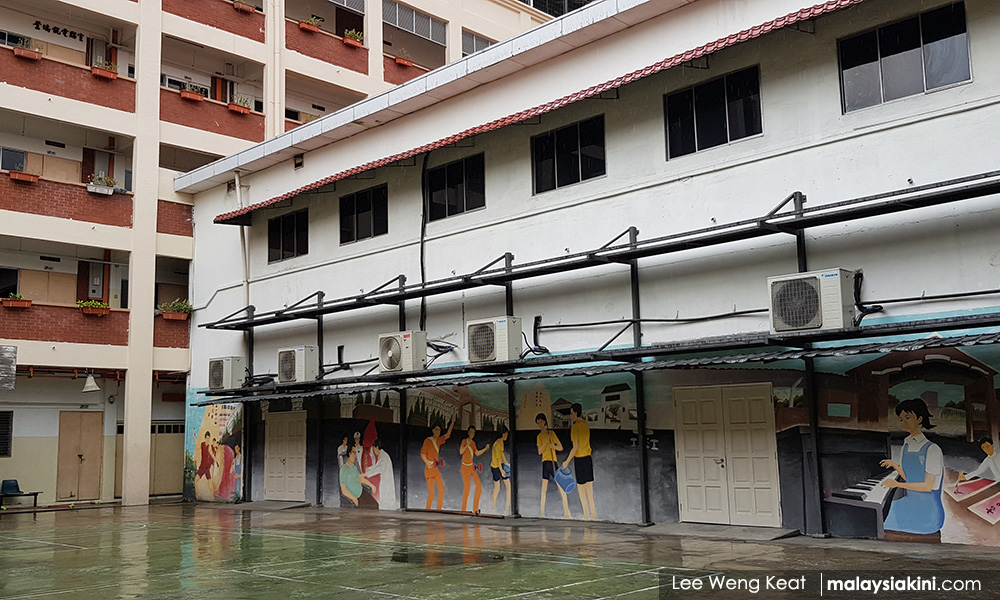Asyraf Wajdi Dusuki has urged all quarters to refrain from questioning the bumiputera agenda as it will only cause the community to question the rights of others such as vernacular schools.
The Umno secretary-general said non-Malays should respect bumiputera sensitivities to maintain stability.
“If the non-Malays are sensitive about the vernacular schools, then respect the bumiputera community’s sensitivities for the sake of the nation’s stability.
“That’s why we must understand the national landscape and practise tolerance. We have our own ways of creating values for Malaysia and let’s go with the formula,” he told Malaysiakini in an interview.
On March 9, Umno Youth chief Dr Muhamad Akmal Saleh urged the government to conduct a detailed evaluation of the vernacular education system.
Akmal said the government should review the vernacular education system and inculcate nationalistic aspects into it while strengthening students’ command of Malay.
“At the same time, we urge the government to improve the national education system and come up with measures to attract students from all races.
“The government should also consider interim measures such as medium and long-term road maps towards an integrated education model, which is based on common values and sense of belonging among the multiracial nation, without setting aside the rights of races in Malaysia to preserve the heritage of their respective mother tongues,” he was reported as saying.
‘Deluded’ Akmal
Akmal’s suggestion received brickbats from many quarters, with former Penang deputy chief minister P Ramasamy accusing the Umno leader of barking up the wrong tree in examining racial polarisation.
“He seems deluded in thinking that vernacular schools are the cause of racial polarisation, leading to disunity in the country.
“This is the reason he proposed that the government undertake a review of the vernacular schools to strengthen the Malay language.
“Is he suggesting that vernacular schools be done away with? Is he equating vernacular schools with the ethnic and religious polarisation in the country?” Ramasamy asked.

On March 11, Education Minister Fadhlina Sidek pointed out that vernacular schools are recognised under the Education Act and there are no plans to abolish the system.
On Feb 20, the Federal Court dismissed two NGOs’ bid for leave to appeal to nullify the validity of vernacular schools, proving that the educational institutions are protected under the Federal Constitution.
Vernacular education a ‘compromise’
Asyraf claimed that vernacular schools exist due to compromises made by Malaysia’s founding fathers despite it being a stumbling block to national integration.
He cited Thailand, Singapore, and Indonesia as examples as they abolished their vernacular schools to promote national unity.
“Every community has their own aspirations and interests. For example, the Chinese are particular about their language, culture, and education.
“Hence, they want to retain their schools and the compromise is reflected in the Razak Report and our national education system,” Asyraf added.
At the same time, he stated that the non-Malays should not question privileges accorded to the Malays, which are guaranteed under the Federal Constitution and vice versa.
“Our formula is about creating integration based on humanity, which is tolerance. So, let’s respect each other’s sensitivities and accept things.”
It should be noted that Asyraf sends his children to Chinese vernacular schools.
In 2018, he stated that sending his children to Chinese-type schools (SJKC) was not contradictory to his objection to recognising the Unified Examination Certificate (UEC).

He also said his decision to school his children as such proved that he was not racist.
“My intention is to expose my children so they are able to get along well with Chinese students at an SJKC, which is a school based on the national education system,” he added.
Comparing the SJKC to the UEC, Asyraf said the latter was not part of the national education system, thus his objection to it. - Mkini



No comments:
Post a Comment
Note: Only a member of this blog may post a comment.